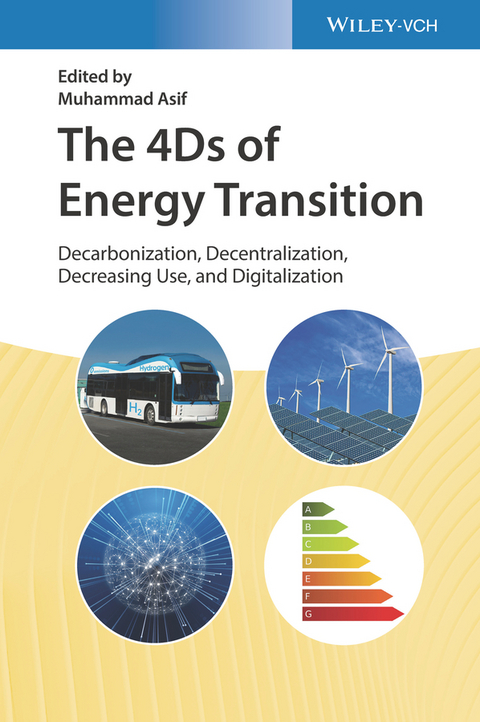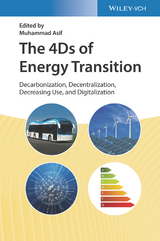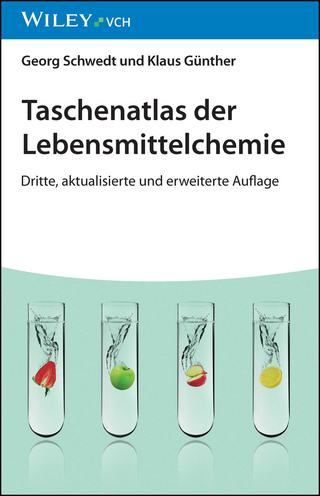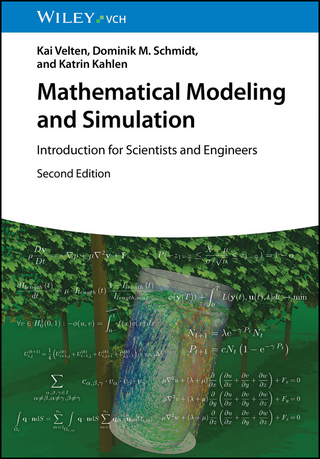The 4Ds of Energy Transition
Wiley-VCH (Verlag)
978-3-527-34882-4 (ISBN)
- Charts the path to global energy sustainability based on existing technology, by focusing on four dynamic approaches of decarbonization, decreasing use, decentralization, digitalization
- Each technology is demonstrated with introduction and example problems which is ideal professional resource for engineers and technicians working in areas related to the development energy systems
- An experienced range of contributors who are key thinkers and researchers in energy and economy
The book provides a comprehensive account of the characteristics of energy transition covering the latest advancements, trends and practices around it. Moreover, it discusses the 4Ds in Energy transition;
- Decarbonization,
- Decreasing use,
- Decentralization and
- Digitalization
also the important technical, economic, social and policy perspectives.
It appropriately incorporates up-to-date data, case studies and comparative assessments. It focuses on and engineering dimensions of the energy transition covering topics like: energy conservation and management; renewable energy and sustainable energy future; hydrogen and fuel cells; electric mobility and sustainable transportation; distributed and off-grid generation; energy storage and batteries; smart energy solutions; smart meters, smart grids and smart cities; fossil fuel; nuclear power.
Dr. Muhammad Asif is a Senior Lecturer at the Glasgow Caledonian University (GCU). He completed his PhD in Applied Energy Engineering from Edinburgh Napier University in 2002. He is a Certified Charted Engineer (UK), Certified Energy Manager (AEE, USA), Member of the Energy Institute (UK) and Fellow of the Higher Education Academy (UK). He is the chair of several international energy forums including the accreditation panel of the Energy Institute. His areas of research interests include renewable energy, energy policy, sustainable development and life cycle assessment.
PART I
INTRODUCTION
PART II
DECARBONISATION
1)Renewable Energy
2)Decarbonisation of the Fossil Fuel Sector
3)Nuclear Power: Status and Trends
4)Electric Vehicles
5)Hydrogen and Fuel Cells
6)Batteries and Energy Storage
PART III
DECREASING USE
1)Fundamentals of Energy Conservation and Management
2)Energy Efficiency: Cross Sectoral Scope and Application
3)Techno-economics of Energy Efficiency
PART IV
DECENTRALIZATION
1)Fundamentals of Distributed Generation
2)Distributed Generation: Power Infrastructure and Grid Parity
3)Distributed Generation: Application and Economics
PART V
DIGITALIZATION
1)Digitalization of Energy Value Chain
2)Smart Meters to Smart Cities
3)Digitalisation: Industry and Policy Status and Trends
| Erscheinungsdatum | 10.08.2022 |
|---|---|
| Zusatzinfo | 10 Abb. in Farbe |
| Verlagsort | Weinheim |
| Sprache | englisch |
| Maße | 170 x 244 mm |
| Gewicht | 950 g |
| Einbandart | gebunden |
| Themenwelt | Naturwissenschaften ► Chemie |
| Naturwissenschaften ► Physik / Astronomie | |
| Technik ► Elektrotechnik / Energietechnik | |
| Schlagworte | Chemie • Chemistry • Electrical & Electronics Engineering • Electrical & Electronics Engineering • Elektrotechnik u. Elektronik • Energie • Energietechnik • Energiewende • Energy • Leistungselektronik • Nachhaltige u. Grüne Chemie • Power Electronics • Power Technology & Power Engineering • Power Technology & Power Engineering • Sustainable Chemistry & Green Chemistry • Sustainable Chemistry & Green Chemistry |
| ISBN-10 | 3-527-34882-4 / 3527348824 |
| ISBN-13 | 978-3-527-34882-4 / 9783527348824 |
| Zustand | Neuware |
| Informationen gemäß Produktsicherheitsverordnung (GPSR) | |
| Haben Sie eine Frage zum Produkt? |
aus dem Bereich




